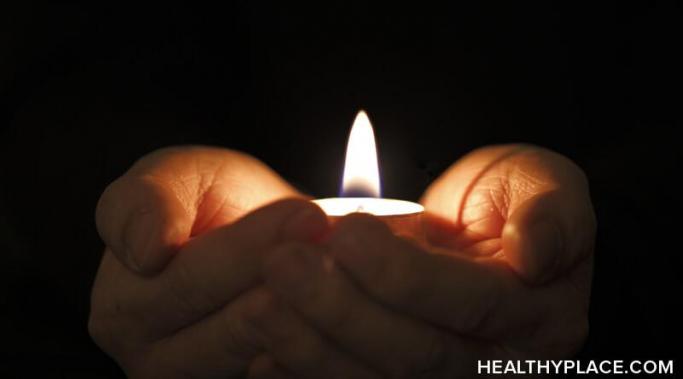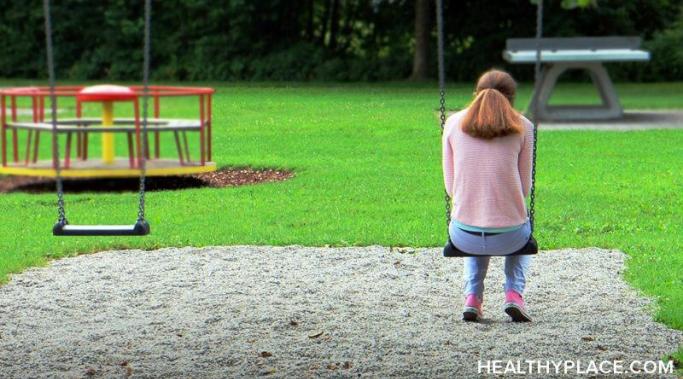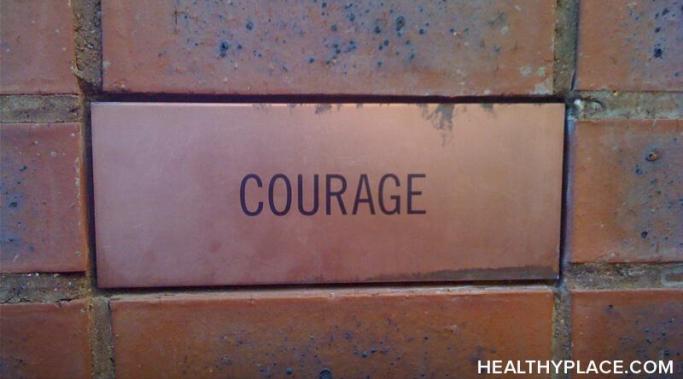Discussing our depression can be beneficial; however, we should use discretion when deciding with whom we choose to discuss our depression. We also need to be mindful of how much detail we go into with people. Not everyone can be trusted with the most painful details of the lowest points of our depression.
Depression Stigma and Self-Stigma
Having healthy coping skills and knowing how to practice them can play a major role in suicide prevention. When someone is struggling with depression and suicidal thoughts, the pain and confusion he/she feels is often compounded by misinformation, incorrect beliefs, and unhealthy coping skills. Yet, these are often the only things a person suffering from a mental health crisis has at his/her disposal. It's time to change this now by having educational conversations about mental health, suicide, and healthy coping skills. (Note: This post contains a trigger warning.)
It's difficult to prove your depression to others because mental illness is an invisible force. The suffering it causes is not physical in the same way that the suffering caused by a broken bone is physical. Even a relatively common mental illness like depression often goes unseen. This invisibility can make us feel helpless in proving to others that our depression is real.
Having depression can sometimes lead to developing negative habits as we try to cope. Often things that aren't necessarily wise or healthy feel good at the moment. Sometimes it's easier to do what is comfortable rather than that which requires work and sacrifice. Also, depression drains us of our energy, thus making it difficult to take even that first step towards building healthier habits. Does this mean we're stuck? No, we're not; we just need to identify our negative habits and work toward changing them into more positive coping skills.
Have you ever noticed how depression can make us feel alone, even when we're surrounded by people? Sometimes it doesn't even matter if the people around us are our closest friends or family members. We may even be talking and laughing; we appear to be having fun, yet, on the inside, our depression has us feeling completely alone. How do we cope when this happens? Are our coping mechanisms always healthy?
The challenge of coping with our depression can be more difficult when people make hurtful remarks to us. Often these hurtful remarks will fuel our negative thoughts and potentially send us into a major depressive episode. What are some of the comments we may hear? How can we use coping skills to keep the harmful comments of others from worsening our depression?
Should you share your suicidal thoughts? How will the choice to share affect your depression? Whether we face suicidal thoughts or have had one or more suicide attempts, the decision of whether or not to share these experiences affects us and how we deal with our depression.
Many of us with depression struggle in social situations. Simply finding the motivation to leave the house can be difficult enough; then, add to that the pressure we feel to interact with others. Just the thought of it is exhausting and terrifying. For example, I often expect my depression to cause awkward moments in social gatherings, which in turn makes me nervous and thus it becomes a self-fulfilling prophecy. This is not how I want to spend my time with friends and family and I imagine you all feel the same. So, what are some undesirable social tendencies our depression may cause and how can we break the cycle of these unwanted interactions and become more comfortable in social situations?
Coping with rejection is difficult for most people, but it can be especially painful for those of us who have depression. We tend to internalize things so rejection often leaves us feeling as if we've done something wrong or plagues us with incessant negative thoughts. So, how can we accept the experience and begin coping with rejection in a healthier way?
The depression battle is fierce, as those of us with depression know. How can we win this battle and conquer depression? I have discovered three effective strategies that are helping me win the depression battle.









